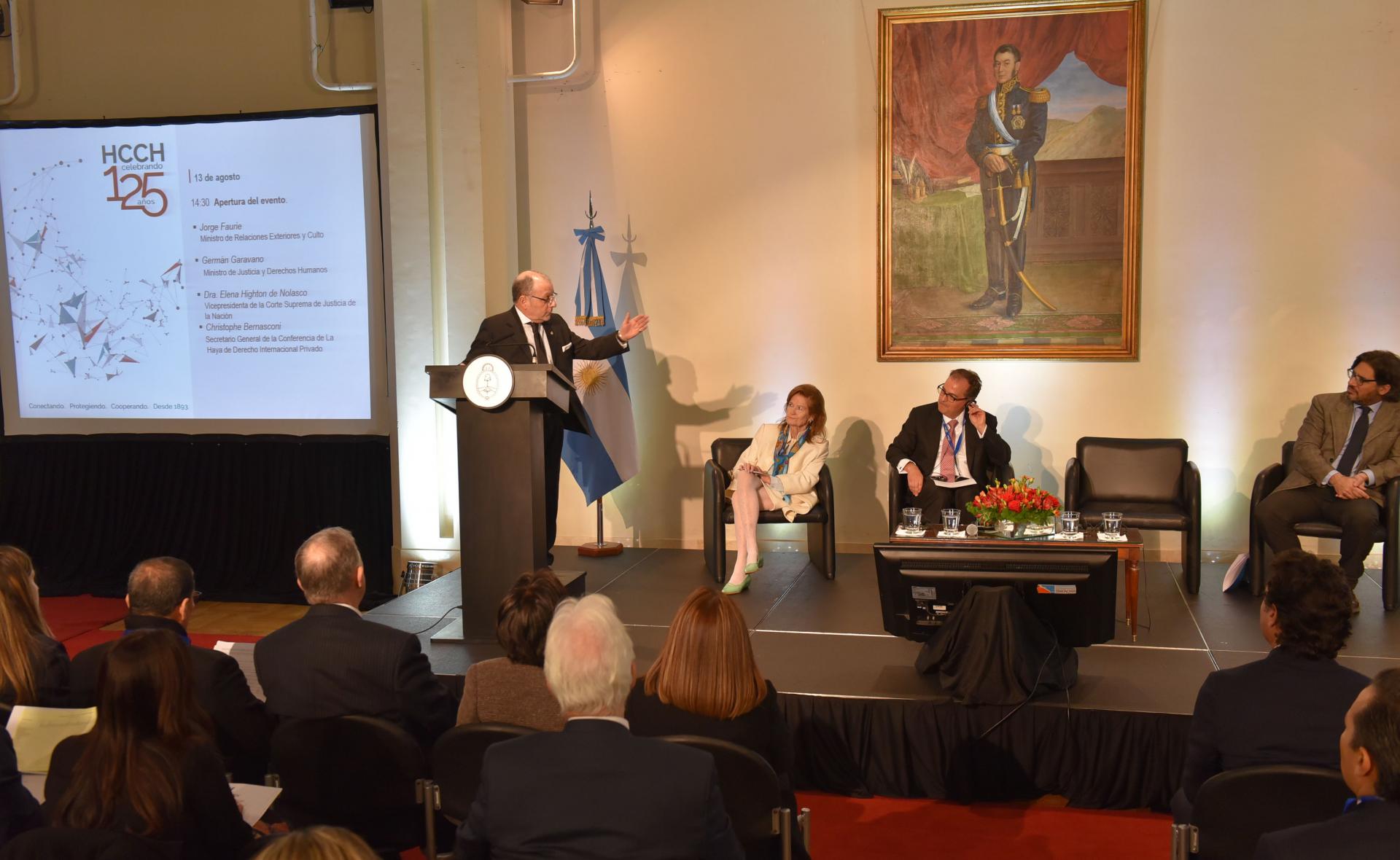"We cannot talk about international law without mentioning the Hague Conference, which has enabled us to identify needs and propose appropriate people-centred solutions and also helps us deal with differences in global trade," Foreign Minister Jorge Faurie stated today as he opened the Latin American Meeting on the implementation and operation of the Hague Conventions on Legal Cooperation and International Protection of Children at the Palacio San Martín.
The event -held within the framework of the 125th anniversary of the creation of the Hague Conference- was attended by the Minister of Justice and Human Rights, Germán Garavano; the Deputy Chief Justice of the Argentine Supreme Court, Elena Highton de Nolasco, and the Secretary-General of the Hague Conference, Christophe Bernasconi.
"At a time of rising global tensions, private international law is of the utmost importance. The reality of global interconnection requires that we deal with differences and recognize diversity so as to coexist with other societies. People's expectations have changed and societies all around the world are asking for concrete solutions to their demands," he stressed.
Faurie highlighted the fact that the agreements reached within the framework of the Conference help simplify specific situations, the most dramatic one being the return of children wrongfully removed from their home. In such situations, this instrument facilitates the serving of notices and the taking of evidence abroad. The Foreign Minister especially underscored the work of the Central Authority, which, with vast experience and effectiveness, operates at the Argentine Foreign Ministry and works on cases involving the return of children.
Likewise, the scope of the agreements reached at the Conference facilitate the protection of families in cross-border situations, as well as the development of business, sometimes by simply stamping an apostille, which enables documents to be used in and recognized by several States.
The Hague Conference currently has 83 Members (82 countries and the European Union). In addition, there are 68 non-member countries that are parties to one or more Hague Conventions. As a result, currently 150 countries around the world are "connected" to the work of the Conference, thus making it a truly global organization in which all regions and legal systems are represented.
The Argentine Foreign Minister listed some of the current challenges at the international level, such as flows of migrants, the technological revolution, the future of employment and the questioning of globalization and-as a consequence- the decision of some global actors to respond with isolation, closed borders and non-cooperation." "In this context, Argentina, being aware of the negative consequences of isolation because of its recent history, once again ratifies its unconditional support for sustained efforts to put international law at the people's service," he stressed.
In that vein, Faurie stated that "the work of the Conference remains relevant, as it continues to adapt to new realities," and underscored the presence of the Regional Office of the Hague International Conference in Buenos Aires.
The Hague Conference was established 125 years ago on the initiative of Tobias Asser, a Dutch statesman who, in 1911, won the Nobel Peace Prize in recognition of such initiative. Throughout its hundred years of existence, the Hague Conference has become the leading Inter-governmental Organization working on the progressive unification of Private International Law, so as to overcome differences among different cultures and legal systems.
This event at the Palacio San Martín served as an opportunity to discuss ways of achieving greater effectiveness when implementing Private International Law instruments locally. The meeting was attended by public officials from the region who are responsible for the operation and implementation of the Hague Conventions, judges of the International Hague Network of Judges, academics from the region and other law specialists interested in the work of the Hague Conference.
Press Release No. 326/18



